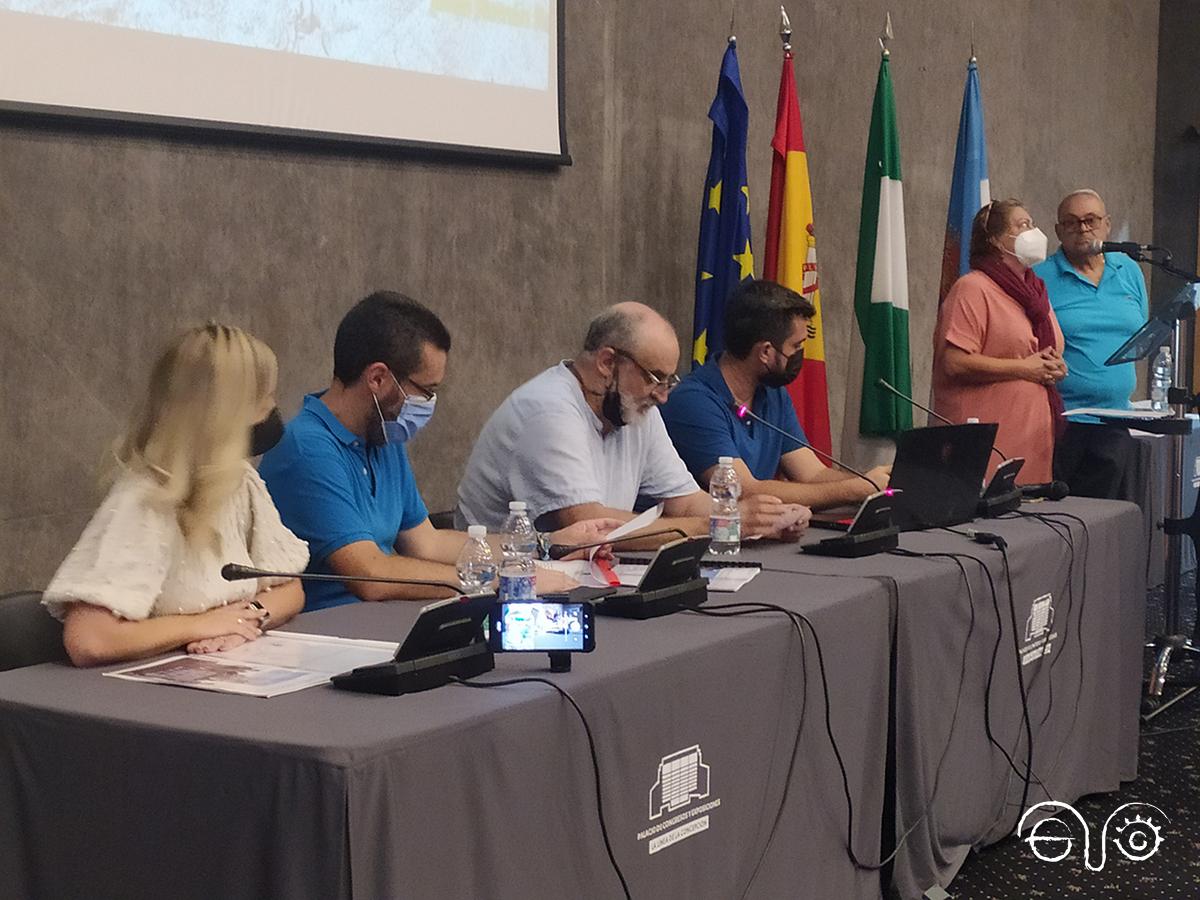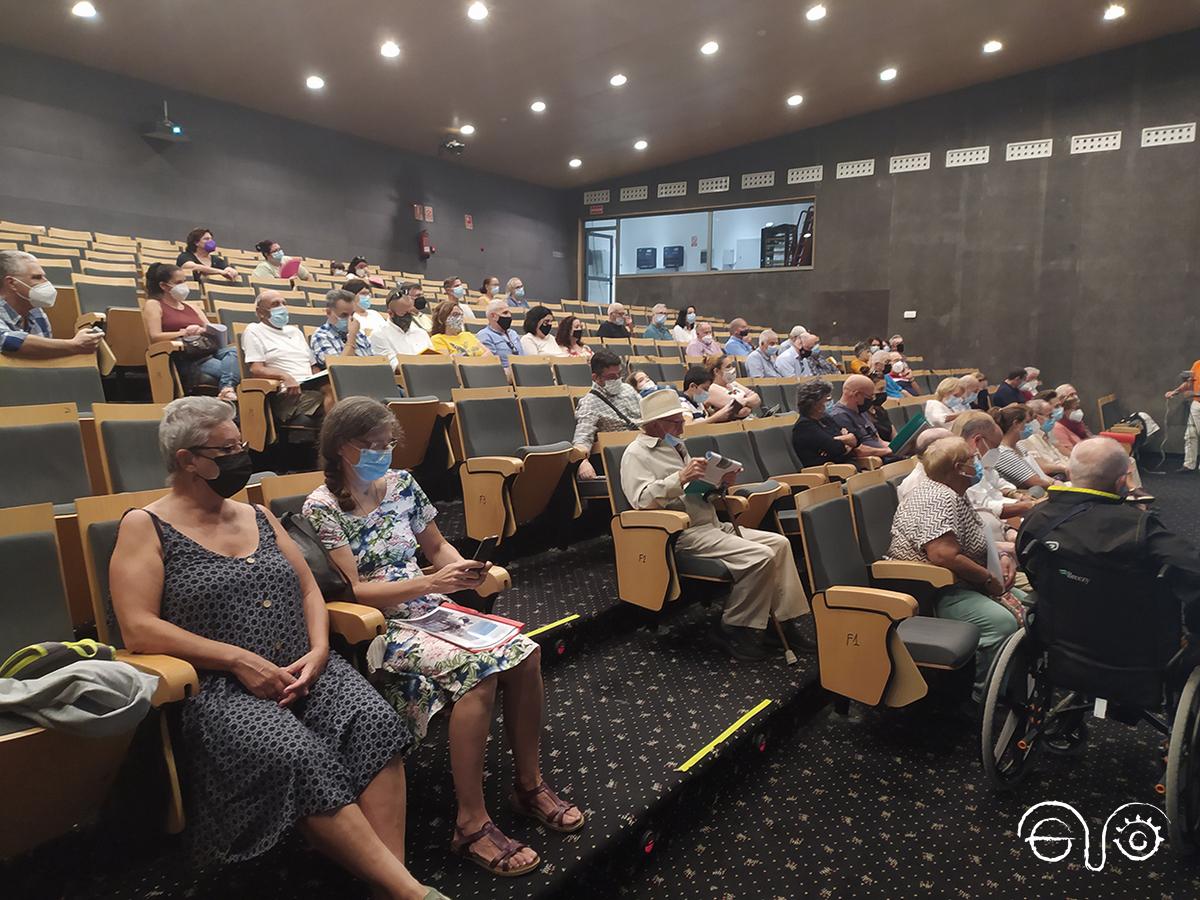The soundings in the municipal cemetery to locate mass graves containing people who were shot by the fascist forces between 1936 and 1945 will begin at the end of November, archaeologist Jesús Román Román, the coordinator of the project, told a meeting on Saturday. The works are being carried out thanks to funding from the Cádiz provincial government and the collaboration of La Línea council.
The meeting took place at the Palacio de Congresos y Exposiciones and was attended by more than 70 people whose relatives were killed, imprisoned, tortured or exiled, as well as relatives of other victims and members of the Forum for Historical Memory of the Campo de Gibraltar. Also attending were the mayor of La Línea, Juan Franco Rodríguez, and the councillor for Citizen Participation, Ceferina Peño, and the head of Democratic Memory at the Cádiz provincial government, Lucía Trujillo Lamas.

Román explained that the soundings will focus on the areas which were indicated by geo-radar last year and should provide a clearer idea of possible alterations which are compatible with the existence of mass graves. The archaeologists will use small 2×2 metre soundings, to see whether there is a possibility that the remains of victims are buried there.
He also used photos of the numerous exhumations in which he has been involved since 2004 to help explain the process which is followed in searches of this type: first, the historical research, then exploration with geo-radar, then excavations, and finally, if the results are positive, the exhumations. As part of the process, DNA samples will also be taken from the relatives and sent to the laboratory at Granada University. They will form part of the future DNA bank and will be used for matching with genetic analysis if the mass grave is exhumed.
Jesús Román then answered questions and gave examples of how exhumations elsewhere have been carried out, such as Jimena, Puerto Real, Cádiz city, and Seville, where excavation works began in January 2020 and where the remains of more than 600 victims have been found so far.
Some of the people present also told of what they knew about their relatives and what had happened to them, or to their families during the fascist repression.
Alfonso Ruiz, a member of the Trafalgar Lodge, also talked about how popular and much-loved his wife’s uncle, Dr Juan Rodríguez García (known as Don Juanito), had been in La Línea. He said he had been shot near Los Barrios, and was killed for helping the poor and because he was a freemason. Alfonso called on the Junta de Andalucía to name the new hospital, which opened a few years ago, after him.
Felipe López Agüera, of the Forum for Historical Memory in the Campo de Gibraltar, paid tribute to José María Ayala Bedoya, a board member of the Forum, who was from La Línea; he died from Covid-19 in January. He said Ayala had contributed a great deal so that relatives of victims in La Línea were where we are today, adding:
Without memory, there is no life. Think about any of your mothers, fathers or grandparents who suffer from dementia or Alzheimer’s, or are ill and cannot manage without the help of a relative. They are dependent, because they are no longer free. The same applies to people in general. If people forget, if they don’t know about or remember the past, they become weak, unprotected, easily manipulated and dependent. They lose their freedom, their independence and even their life, in some cases.
Juan León Moriche, another board member, pointed out that a couple of weeks ago the UN again reminded the Spanish government of its duty to try to find the 115,000 people who disappeared in this country and to carry out a judicial investigation into what happened to them. “It is not us asking for this, nor a political party, nor a union,” he said. “It is what the United Nations is demanding, because the UN is reminding the Spanish state that there is now no statute of limitations for genocide and crimes against humanity, and there is no amnesty for them”.
León Moriche said those who started the war against the Spanish people in 1936 had three objectives: to kill a great many people in each town and village in Extremadura and Andalucía in order to instill terror, to wipe out the traces of the crimes they committed and to erase the victims, even from their families’ minds.
“This meeting here in La Línea today is a small triumph against those who wanted to force us to forget. We are never going to forget our relatives, and we are never going to forget the crimes those people committed,” he said.

